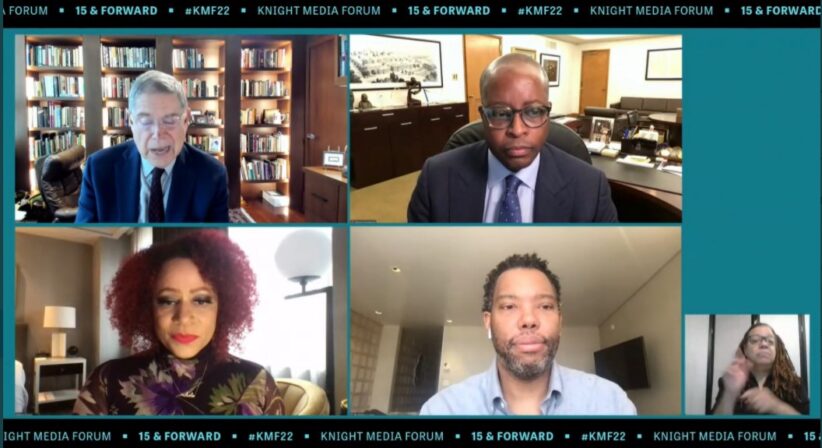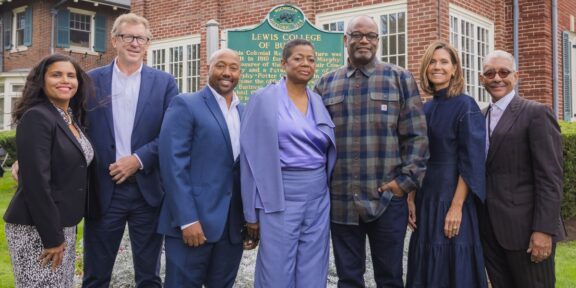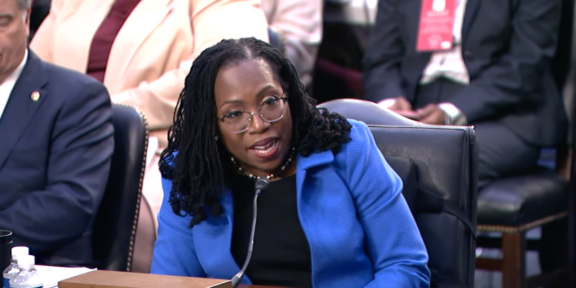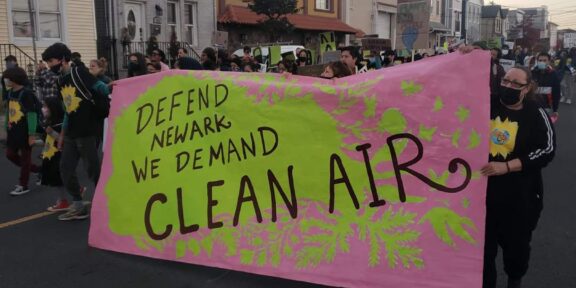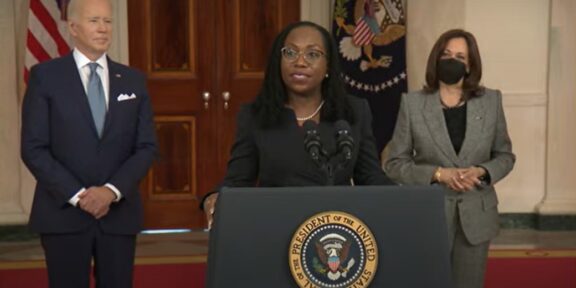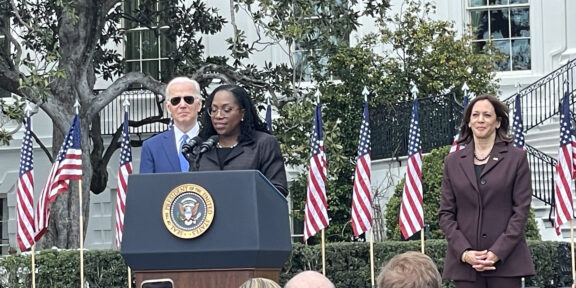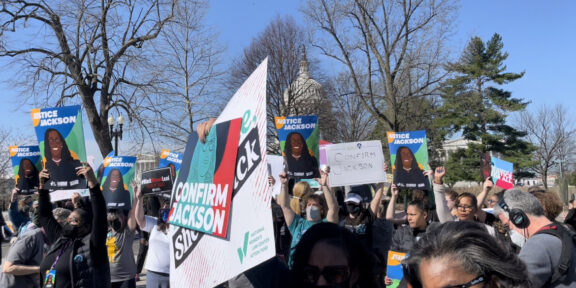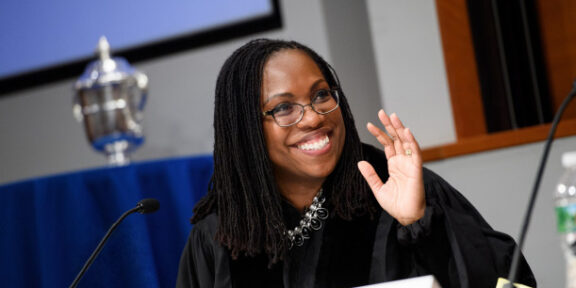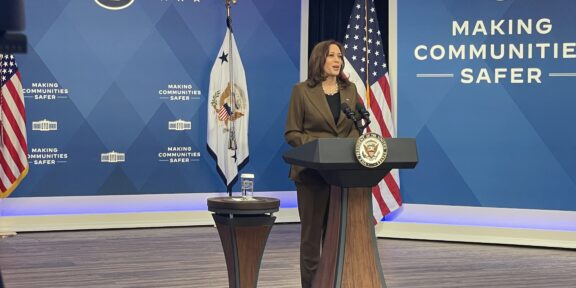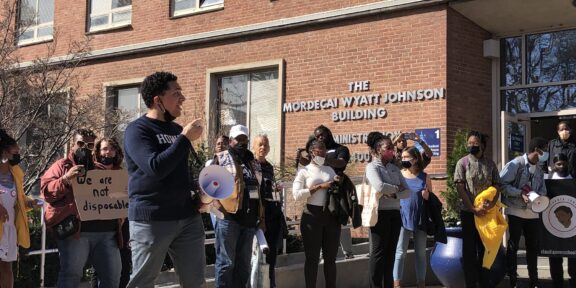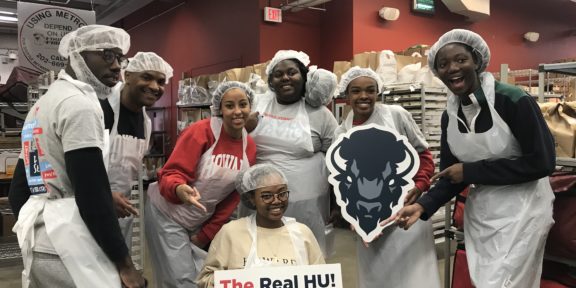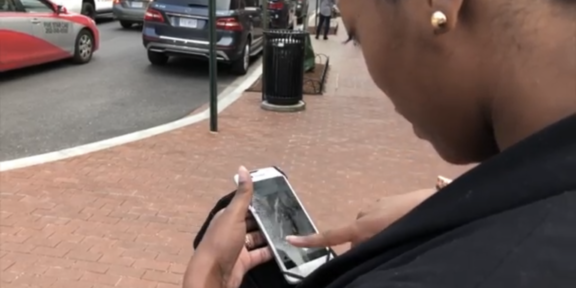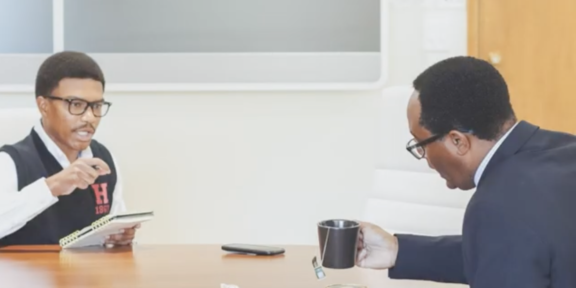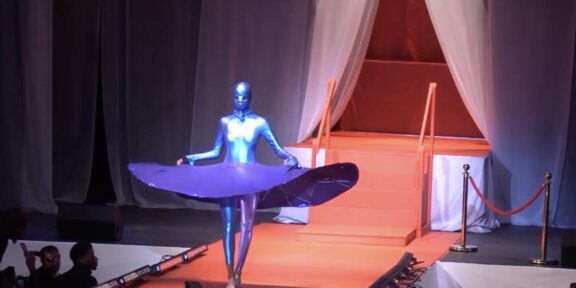By Nyah Marshall
Howard University News Service
“Two of America’s best journalists are teaching?”
An audience member asked this question during the 15th annual Knight Media Forum in reference to Ta-Nehisi Coates and Nikole Hannah-Jones who recently joined the Howard University faculty.
Coates, who is a Howard alumnus, is the Sterling Brown Chair in the Department of English. Hannah-Jones is the Knight Chair in Race and Journalism. She is teaching a journalism course named after her Pulitzer Prize-winning “1619 Project” in the Department of Media, Journalism and Film.
In thinking about the state of race relations, Coates and Hannah-Jones elaborated on what can be done so journalism better serves communities and ultimately becomes more trustworthy.
The three-day forum opened on Tuesday with a discussion titled “How Howard University Worked to Reframe and Elevate the Conversation Around Truth, Journalism and Clarity.” Alberto Ibargüen, president and CEO of the Knight Foundation, moderated the panel, which also featured Dr. Wayne A.I. Frederick, president of Howard University.
Frederick emphasized journalism’s role in facilitating national conversation and social progress. Howard’s commitment to train future journalists effectively and document stories that otherwise wouldn’t be told is evident. In fact, the university’s Moorland-Spingarn Research Center — the world’s largest repository for the documentation of Africana history and culture — recently received a $2 million grant from the Jonathan Logan Family Foundation to support the preservation and digitization of the Black Press Archives.
Hannah-Jones elaborated on how her efforts at Howard and as a co-founder of the Ida B. Wells Society for Investigative Reporting are supporting the future of journalism. This includes founding the Center for Journalism and Democracy, which worked in partnership with Moorland-Spingarn in securing the gift. The center’s goals also include training journalists in investigative reporting as well as the historical and analytical expertise needed to cover the state of the nation’s democracy.
“Because of Dr. Frederick’s vision of making Howard a hub for other HBCUs … that helped me to think in a similar vein for the Center for Journalism and Democracy,” Hannah-Jones said.
“So, we are going to be helping to bolster investigative reporting at a constellation of HBCUs that have large journalism programs. That’s going to include funding visiting professorships to bring practitioners like myself and Ta-Nehisi into the classroom.”
Another sentiment introduced at the start of the webinar by Ashley Zohn, the vice president of learning and impact at the Knight Foundation, is that “local builds trust.” When Ibargüen geared the discussion toward the state of local journalism, the forum’s underlying theme, Coates and Hannah-Jones had similar considerations: Good journalism questions power and is skeptical of those institutions. They added that skepticism should start at the local level.
“Does the newspaper reflect the community, or does the newspaper reflect power?” Hannah-Jones said. “And then we blame the community for not reading the newspaper. What I would argue, if you started actually reflecting the communities, people would engage with the media that you’re producing.”
Coates feels that being skeptical of institutions and power structures as a journalist is something that can be learned from the history of Black communities and journalists.
“Some of these differences are due to the fundamental difference that African Americans have with the State, and that there are lessons to be actually gleaned from the central skepticism that African Americans have to the State,” Coates said. “We exist in a very different place, because of the history of Jim Crow.”
“Because of the history of enslavement; because of the history of redlining, housing segregation and mass incarceration, you go down the line, we have not been in the position to take State figures at face value,” he continued. “That’s just not really been a part of our history. And I think the larger community of journalists could actually benefit from that.”
The need for newsroom diversity and the question of whether objectivity can ever exist in journalism were a few of the other aspects touched on during the conversation.
Hannah-Jones asserts that objectivity in journalism does not exist, because every choice a journalist or journalism organization makes is implicitly or explicitly biased. Instead, she suggests journalists should consider how they can make their reporting more credible, transparent and fair. Coates agreed, saying that objectivity is tied to power. “We should not pretend that discussions about objectivity are themselves objective, when they’re not.”
The Knight Foundation’s first webinar of the forum proved to be a successful, thought-provoking discussion. In fact, over 40 questions from audience members in the virtual chat had to be left unanswered due to lack of time.
This conversation represents the ways in which Howard University is teaching journalism that examines democracy and sustains communities. Many, including Ibargüen, are interested in seeing how this thinking will help to train future storytellers.
Ibargüen said that Howard has the opportunity “to put out a really useful, challenging and different way of thinking about journalism that matters, journalism that is going to make us understand the world better.”
Nyah Marshall is a reporter and regional bureau chief for HUNewsService.com.

